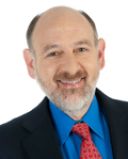You might have thought appetite could be conquered through willpower and discipline, but science is now revealing that it is not so simple. Disordered eating results from complex interactions between genetics, hormones, vitamins, minerals, amino acids, stress and personal habits. Moreover, the processes in the brain that perpetuate disordered eating are outside our conscious control.
At the deeper level, chemicals in the brain become wired to produce a powerful rush of pleasure in response to food or even the thought of it. Consuming sufficient food for energy metabolism is essential for the survival of all species in the animal kingdom. However, mammalian brains have evolved several interrelated neural and biochemical systems that drive feeding behaviors. The most potent drive for feeding behavior is its rewarding nature. We are no longer eating just to survive; we are eating to elicit a feeling of happiness when we consume certain foods.
For many adults, these signals continue to work effectively. A person with a normal, healthy appetite will eat when she is hungry. But in some people, the inborn signals for hunger and satiety are out of kilter, which can result in a number of conditions that can pose threats to your daily health and overall sense of well-being.
These disturbances exist on a spectrum, ranging from mildly compulsive dieting to anorexia, from bingeing to binge eating disorder, from occasional bingeing and purging to bulimia. The cycles involved in abnormal appetite signals become complex and self-generating, creating patterns that affect every aspect of an afflicted person’s life.
Someone who is deprived of nutrients may begin to exhibit a wide range of emotional symptoms. The compulsive dieter is likely to become depressed. Eating behaviors become so strange—ritualistic patterns, cutting everything into micro bites, counting chews, hoarding food—that the person who lives this way becomes more and more isolated, trying to hide her elaborate behaviors involving food and its restriction. In short, her constant efforts to control her appetite take over her life. At the opposite end of the spectrum of disordered eating is the person who eats far more than his body needs or can use. He responds to food cues by eating.
Struggles of these proportions are virtually impossible to turn around with willpower alone, and, without intervention, can grow to damage every area of your life, including career, family and financial security.
The basis of an appetite gone wild is biochemical imbalance. After an evaluation of the particular factors that may throw your appetite out of control, implementing the New Hope model I have developed will make it possible for you to regain a normal appetite.
Individualized treatment plans can help restore harmony to your body and make it easier to achieve a healthy lifestyle and a desired weight. By using integrative strategies that involve nutritional interventions, supplementation, lifestyle changes, therapy, and biologically appropriate medications when necessary, you can learn to overcome the chaos of an abnormal appetite and replace it with a harmonious relationship with food.
Additional articles on appetite:
Kinzl, J., Traweger, C., Trefalt, E. et al. (1999). Binge eating disorder in females: A population-based investigation. International Journal of Eating Disorders, 25(3), 287-292.
Kotwal, R., Kaneria, R., Guerdjikova, A. (2004). Binge-eating disorder: where medications fit in the comprehensive treatment of eating disturbance, obesity and depression. Current Psychiatry, 3, 31-47.


